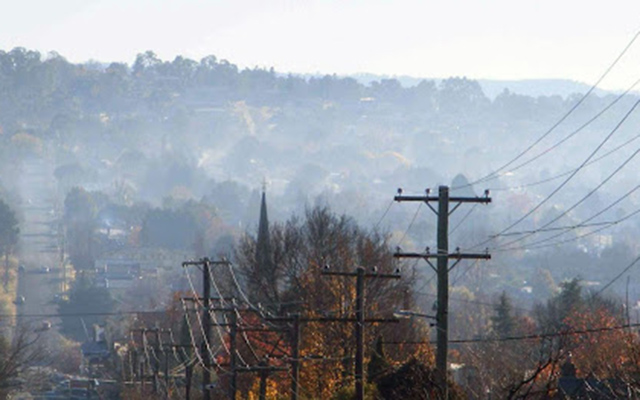
While gathering around a fire has been a traditional means of keeping warm in the winter months for thousands of years, it’s a problem for many of our communities today.
Wood smoke is one of the main sources of air pollution in Washington and our communities often suffer with poor air quality because of it. One of the ways Ecology is working to improve air quality is through wood stove buy-back programs.
Smoke pollution still a problem despite improved technology
Newer wood stove technology has greatly improved and exceeded older wood stoves in efficiency and smoke reduction. For example, an old, uncertified wood stove produces about 252 pounds per year of smoke while a certified wood stove produces about 50 pounds per year. Comparatively, pellet, gas, or electric home heating makes much less smoke if any at all.
Even with improved technology standards since 1995, wood smoke is one of the main sources of air pollution in Washington. In winter, more than half of our fine particle pollution comes from wood burning devices for home heating. These tiny particles are small enough to make it past our natural defenses and lodge deep in the lung tissue where they have long lasting effects on respiratory and cardiovascular functions. As you might imagine, these pollution particles are in greatest concentration where the smoke is produced, our residential neighborhoods.
Say "Hello" to wood stove buy-back events!
In order to improve air quality, Ecology developed incentive programs to reduce the number of uncertified wood stoves. Residents can upgrade their home heating device to a less polluting option. Old, uncertified stoves can be turned in for a cash reward, about $200.
On the day of the event, wood stoves are inspected to ensure they meet minimum standards as set in the advertising. The wood stoves must have been removed from a residence in the designated community or county of the event.
From 2012-2017, eight events resulted in 748 old wood stoves turned in by Eastern Washington residents. Those old wood stoves were destroyed and the metal recycled, removing future smoke from that stove, permanently. That translates to about three tons of wood smoke prevention per event. Eleven tons total so far!
These programs have been well received by participants. Positive feedback has come from the public in comments such as:
“This is awesome. I hate my wood stove.”
Funding for buy-back programs
On Jan. 19, 2018, Gov. Jay Inslee signed the 2018 Supplemental Capital Budget which included $2 million in funding to Ecology to provide wood stove grants and programs. Ecology expects to begin soliciting proposals in the late spring of 2018.



